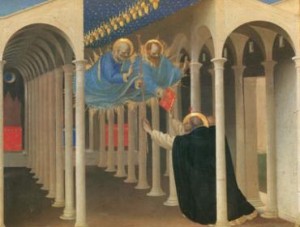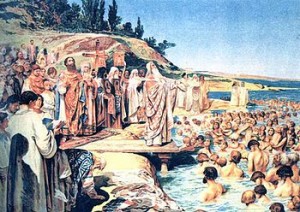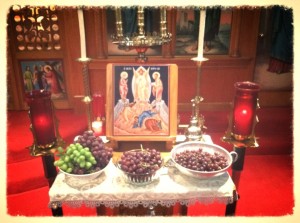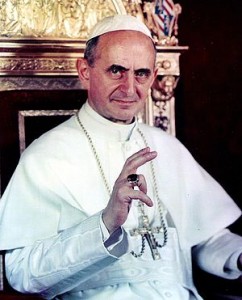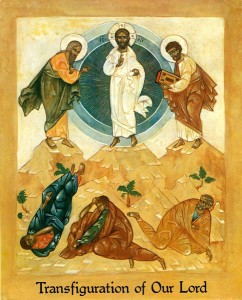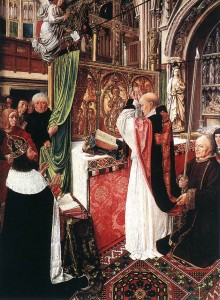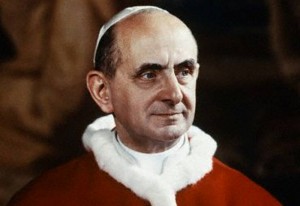 Pope Paul VI, of blessed memory, died on this date in 1978. In history, late summer at that time became known as the year of three popes. Paul’s now being consider for sainthood and thus carries the ecclesial title of Servant of God. His last Last Will and Testament follows. Thought it would be interesting to read; there are some key interesting statements of faith and person.
Pope Paul VI, of blessed memory, died on this date in 1978. In history, late summer at that time became known as the year of three popes. Paul’s now being consider for sainthood and thus carries the ecclesial title of Servant of God. His last Last Will and Testament follows. Thought it would be interesting to read; there are some key interesting statements of faith and person.
Some notes for my testament.
In the name of the Father and of the Son and of the Holy Spirit. Amen.
1. I fix my gaze on the mystery of death, and on what follows it, in the light of Christ which alone can brighten it, and for this reason with simple and serene trust. I recognize the truth, which for me has always reflected on present life regarding this mystery, and I bless the victor over death for having escaped its shadows and unveiled the light. Thus before death, in total and definitive separation from the present life, I feel the duty to celebrate the gift, the good fortune, the beauty, the destiny of this very fleeting existence. Lord, I thank you that you have called me to life, and still more that, by making me a Christian, you have regenerated and destined me for the fullness of life.
Likewise I feel the duty to thank and to bless those who were mediators for me of the gifts of life bestowed on me by you, O Lord: those who brought me to life (Oh! May my most worthy parents be blessed!), those who educated me, wished me well, were kind to me, helped me and surrounded me with good example, attention, affection, trust, kindness, courtesy, friendship, faithfulness, respect. I am thinking with thanks about the natural and spiritual relationships which have given origin, aid, comfort and significance to my humble existence. How many gifts, how many beautiful and noble things, how much hope have I received in this world!
Now that the day is setting, and all is finishing and this stupendous, dramatic temporal and earthly scene is disappearing, how again can I thank you, O Lord, for the gift of faith and of grace, higher than the gift of natural life, in which at the end my being takes refuge?
How can I worthily celebrate your kindness, O Lord, for having been included just as I entered into this world, in the ineffable world of the Catholic Church? For having been called and initiated into the priesthood of Christ? For having the joy and mission of serving souls, brothers, youth, the poor, the people of God, and for having the unmerited honor of being a minister of the holy Church, in Rome especially, next to the Pope, then in Milan as archbishop on a throne too exalted for me, the most venerable throne of Sts. Ambrose and Charles, and finally on that supreme, most formidable and most holy throne of St. Peter? I will sing out the Lord’s mercies forever.
May all those whom I have met on my earthly pilgrimage be blessed and saluted: those who were my collaborators, counsellors, and friends–and they were many, such good people, generous and dear! Blessed be those who welcomed my ministry and were my sons and brothers in Our Lord!
To you, Ludovico and Francesco, brothers in blood and spirit, and to all you dear ones of my home, who never asked anything of me, and never had from me any earthly favor, and who always gave me an example of human and Christian virtues, you who understood me with so much discretion and cordiality and who above all helped me to seek in the present life the life of the future — my peace and my benediction be with you.
The mind turns back and its horizons broaden around me, and I know well that this farewell would not be a happy one, were I not to remember to ask pardon of those I’ve offended, failed to serve or failed to love enough, and to ask pardon of anyone who desires it of me. May the Lord’s peace be with you.
I feel that the Church surrounds me. O holy Church, one, catholic and apostolic, receive my supreme act of love with a salute and blessing.
To you, Rome, diocese of St. Peter and of the vicar of Christ, most beloved to this last servant of the servants of God, I give my most paternal and full blessing so that you, city of the world, will be always mindful of your mysterious vocation and with human virtue and Christian faith, know how to respond to your spiritual and universal mission, however long will be the world’s history.
And to all of you venerated brothers in the episcopate, my cordial and reverent greeting. I am with you in the one faith, in service together to the Gospel, for the building up of the Church of Christ and for the salvation of all humanity.
To all priests, to men and women religious, to students in our seminaries, to militant and faithful Catholics, to youth, to the suffering, the poor, seekers of the truth and justice, to all, the benediction of the Pope who is dying.
And thus, with special reverence and recognition for the lord cardinals and for all the Roman Curia: Before you who surrounded me most closely, I profess solemnly our faith, I declare our hope, I celebrate our charity which does not die by accepting humbly from divine will the death which is my destiny, invoking the great mercy of the Lord, imploring the clement intercession of most holy Mary, of the angels and saints, and recommending my soul to the remembrance of the good.
2. I name the Holy See my universal heir: I owe it duty, gratitude, love. Except for the dispositions herewith indicated.
3. My private secretary is to be executor of my testament. He will want to take counsel with the secretariat of state and conform to the juridical norms in force and to good Church custom.
4. Concerning the things of this world: I have decided to die poor and thus simplify any question in this regard.
As for possessions and properties which I still have from my family, my brothers Ludovico and Francesco are to dispose of them freely; I beg of them some remembrance for my soul and for those of our dead. May they bestow some alms on needy persons and good causes. May they keep for themselves, and give to those who merit and desire it, some memento from among the possessions, religious objects or books belonging to me. May the notes, notebooks, correspondence and my personal writings be destroyed.
Concerning the other things which can be considered my own: My personal secretary is to dispose of them, as executor, keeping some mementos for himself and giving some small object as a memory to my best friends. I would like manuscripts and notes written in my own hand to be destroyed; and may the correspondence received of a spiritual and confidential nature which was not intended to be shown to others be burnt. If the executor cannot see to this, may the secretary of state take on the job.
5. I strongly urge my possessions be disposed of for proper remembrances and as generous contributions, as much as possible.
About the funeral: May it be pious and simple. (May the catafalque now in use for pontifical funeral rites be substituted by a humble and decorous contrivance.) The tomb: I would like to be in real earth, with a humble marker indicating the place and asking for Christian mercy. No monument for me.
6. And concerning what counts most, my departure from this world’s scene and my journey to meet the judgment and mercy of God: I would have so many, many things to say.
On the state of the Church: May she listen to a few of our words, uttered with seriousness and love for her.
Concerning the Council: May it be brought to a good climax and be executed faithfully. Regarding ecumenism: May the work of bringing together separated brothers proceed with much understanding, patience and great love, but without defecting from true Catholic doctrine.
Concerning the world: Do not think the Church can help it by assuming its thoughts, customs, tastes, but rather by studying it, loving it, serving it.
I close my eyes upon this sad, dramatic and magnificent earth calling once again still on divine kindness. I again bless everyone. Especially Rome, Milan, Brescia. A special blessing and greeting to the Holy Land, the land of Jesus, where I was a pilgrim of faith and peace.
And to the Church, to the most beloved Catholic Church, and to the whole of humanity, my apostolic blessing.
Then: Into your hands, O Lord, I commend my spirit.
PAULUS PP VI
Given in Rome, near St. Peter
June 30, 1965, third year of our pontificate.
Complementary note to my testament:
Into your hands, O Lord, I commend my spirit. My soul magnifies the Lord. Mary! I believe. I hope. I love. In Christ. I thank those who have done good to me. I ask pardon of those to whom I have not done good. I give peace to all in the Lord. I greet my dearest brother Ludovico and all my relatives and friends, and those who have welcomed my ministry. To all collaborators, thank you. Especially to the secretariat of state. I bless Brescia, Milan, Rome, and the whole Church with special charity. How lovely is your dwelling place, O Lord! May everything that is mine go to the Holy See. May dear Don Pasquale Macchi, my private secretary, see to providing for some remembrances and benefices and giving some memento among my books and objects to dear ones. I do not want a special tomb. Some prayers that God may be merciful. In you, O Lord, have I placed my hope. Amen, alleluia. To all my blessing, in the name of the Lord.
PAULUS PP VI
Castelgandolfo, Sept. 16, 1972, 7:30 am.
+++
Addition to the dispositions of my testament. I want my funeral to be very simple and I do not want any special monument. Some remembrances (benefices and prayers).
PAULUS PP VI
July 14, 1973.
